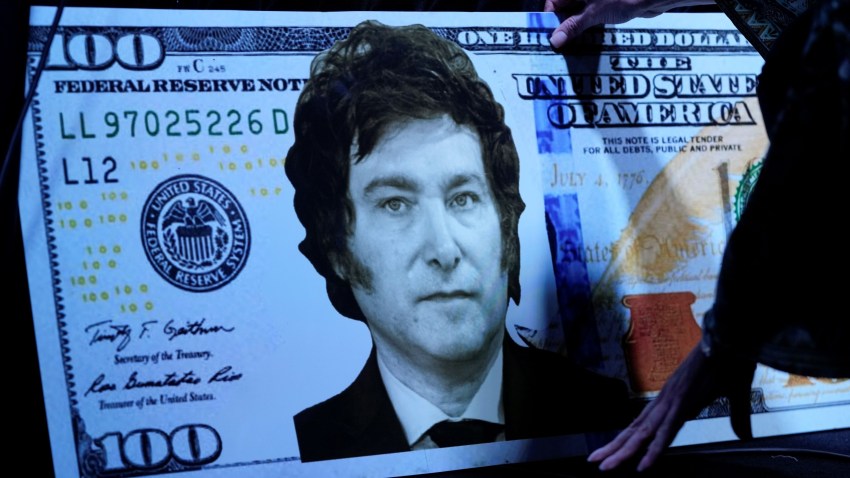At last month’s BRICS Summit in South Africa, Argentina was among six new countries invited to join the organization, which currently consists of Brazil, Russia, India, China and South Africa. At the same time, as often happens at BRICS summits, there were debates about the potential for so-called de-dollarization of the global economy, meaning the promotion of alternative currencies to the U.S. dollar—possibly including a BRICS-led currency—for settling international trade transactions. In addition to advancing BRICS’ much-touted desire to replace the U.S.-led global order with a multipolar one, de-dollarization would allow Russia—and Iran, which was also invited to join the group—to more easily evade U.S. economic sanctions.
The government of Argentine President Alberto Fernandez is definitely on board with the de-dollarization agenda. Fernandez has expanded Argentina’s currency swaps in yuan with China and advocated for local currency usage in trade with Brazil, in part to mitigate his government’s exchange and monetary policies, which has drained Argentina of its foreign currency reserves, including dollars. de-dollarization and a shift away from the U.S.-led economic order appear to be a key part of the foreign policy agenda of both the Fernandez government and his ruling Peronist coalition.
However, days prior to the BRICS Summit, Javier Milei, a libertarian economist and proponent of dollarizing Argentina’s economy, finished first in the country’s open presidential primary, making him the frontrunner for October’s presidential election. The second-place finisher, opposition candidate Patricia Bullrich, has not advocated for full dollarization, but she hopes to remove the currency controls put in place by the Peronists to allow a greater flow of dollars into and out of the country. As the Peronist candidate, Economy Minister Sergio Massa, has little chance of winning in October, either Milei or Bullrich is likely to be Argentina’s president next year. Both have also already expressed their opposition to joining BRICS.

